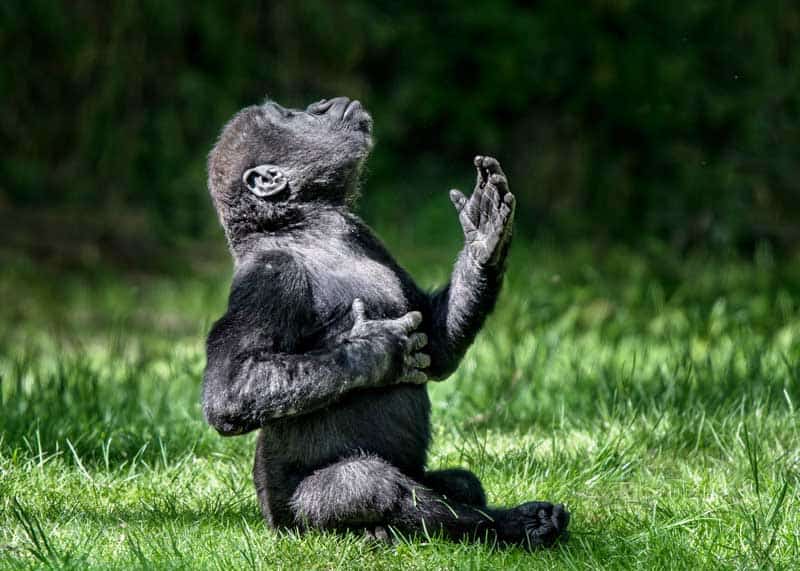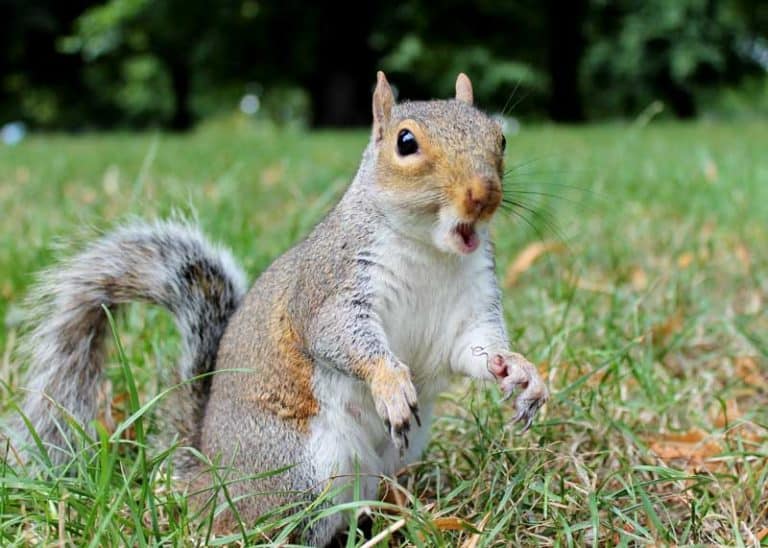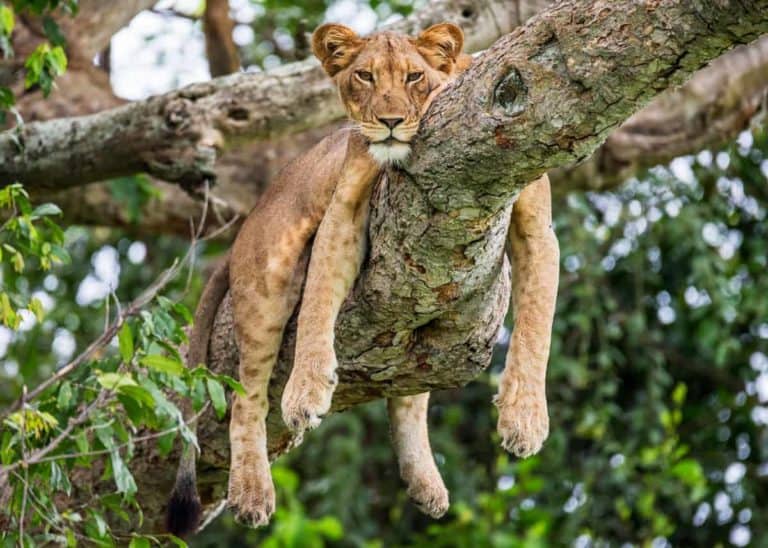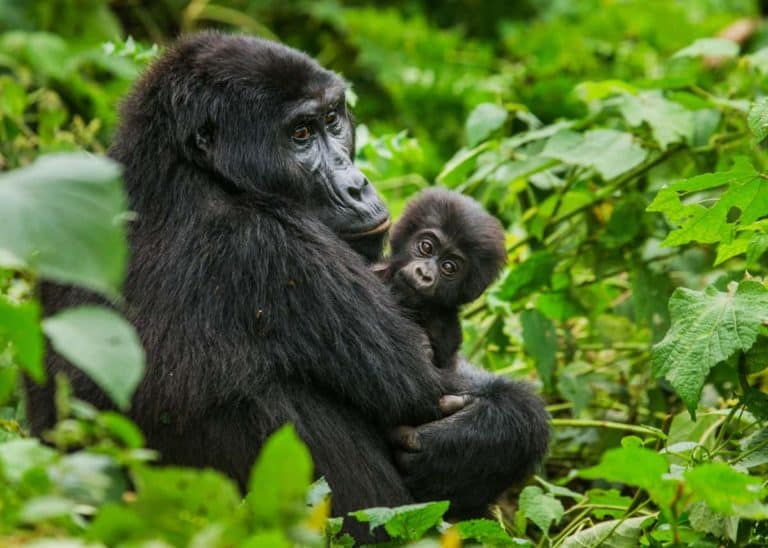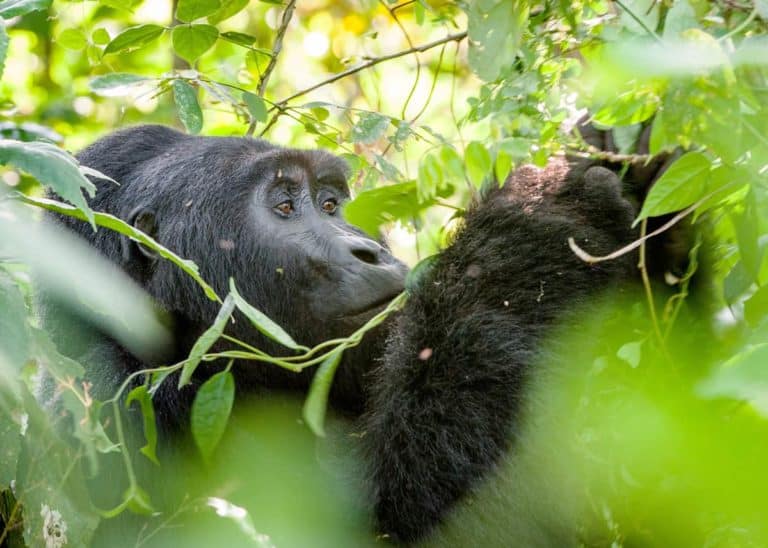Why do Gorillas Beat Their Chest? 4 Reasons
Why do gorillas beat their chest? Perhaps you picture an angry, oversized ape about to leap into action. But is there more to it than that? In this article, we’ll consider 4 reasons why gorillas beat their chest. We will also answer the questions: Do females beat their chest? What about baby gorillas?
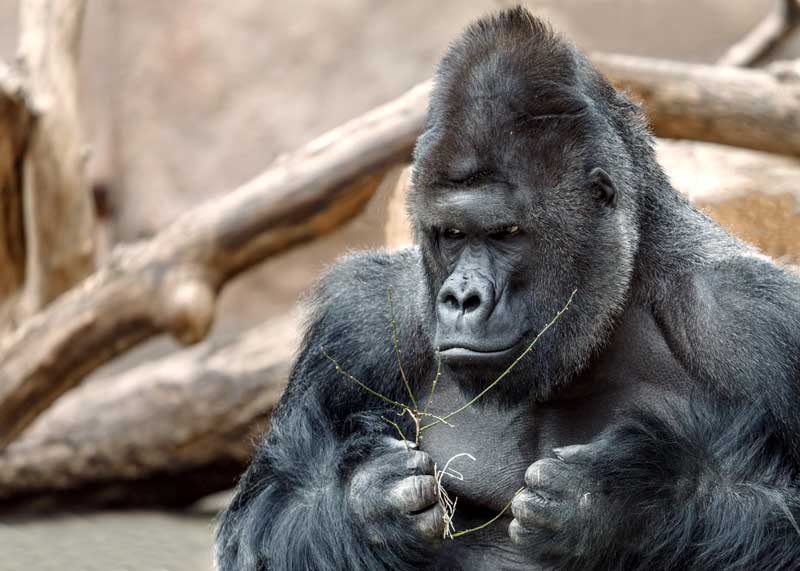
4 Reasons Male Gorillas Beat Their Chest
An intensive study took place at Volcanoes National Park in Rwanda from 2014-2016 to observe the habits of mountain gorillas.
Over 3,000 hours were spent, and more than 500 chest beats from 25 different males were recorded by Edward Wright and fellow researchers.
Here are some of their findings as to why gorillas beat their chest.
1. As an Indication of their Size/Rank in the Group
Using photographs and laser technology, the group was able to determine the size of each gorilla. What they found was fascinating- the larger the gorilla, the lower the sound frequency produced during the chest pummeling.
So the dominant male would make a very low sound, while juveniles would produce a higher frequency sound when beating their chests.
2. As a Warning
While it may seem to be an aggressive action, when a gorilla beats his chest he may actually be trying to avoid a fight. Because we now know that the sound made is indicative of the gorilla’s size, it may be his way of saying “I’m a big guy, it would be in your best interest to back down.”
Rival males can then decide whether to initiate or escalate a fight, or to retreat.
Keep in mind that gorillas are huge. Males can reach a standing height of 5.6 feet (1.7 meters) with more than an 8-foot arm span (more than 2.5 meters). Add to that, they can weigh 420 pounds (190 kilograms). And they have big sharp teeth! If they were to get into a fight, chances are that even the winner would be pretty beat up. So if they can assert dominance by chest beating rather than fighting, it works out better for all involved.
3. To Attract Females
Another thing that the researchers noticed is that the dominant male will beat his chest more often when a female is in heat. As females in the gorilla world are usually drawn to the big alpha male, it is his way of showing how desirable he is.
4. As a Form of Identification
While the sound frequency correlated to the size of the gorilla, the rate, duration, and amount of beats varied from male to male. While there’s still lots of research to do, the way that each gorilla beats his chest may be a sign of his individuality- his own signature sound.
When a gorilla beats his chest, he does so not with fists but with cupped hands. This amplifies the sound, which can be heard up to half a mile (0.8 kilometers) away. This can be very useful in their dense forest habitat, as it allows a member to say “I’m Bob the gorilla, and I’m over here.”
That being said, gorillas are not constantly pounding their chests. The study showed that each male beat his chest an average of 1.6 times every 10 hours.
Keep reading: How Strong is a Gorilla?
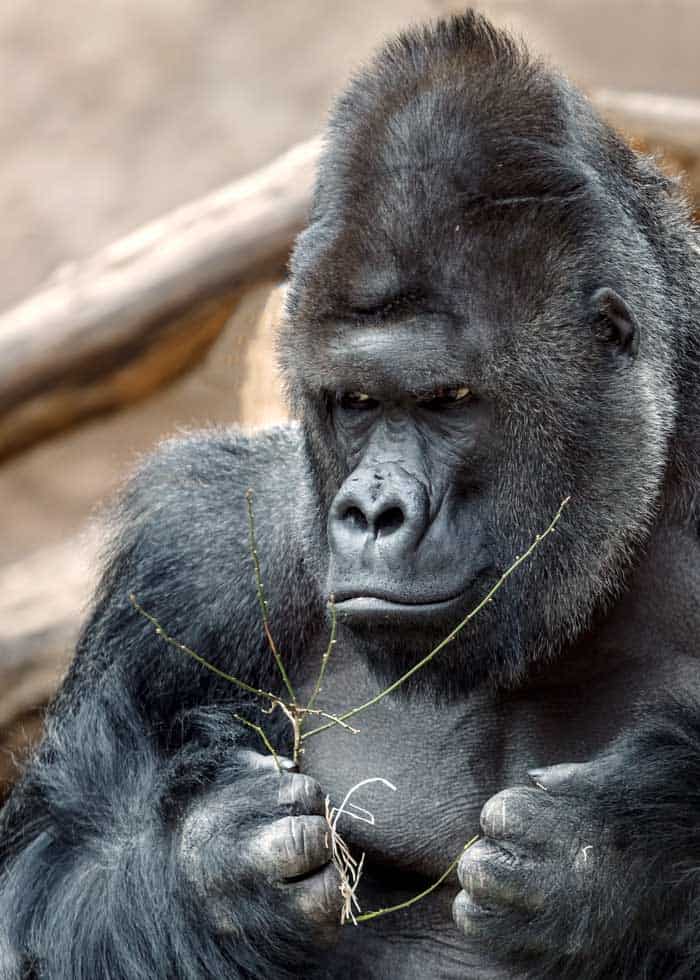
Do Female Gorillas Beat their Chests?
Yes. While it is not as frequent, female gorillas also will beat their chest from time to time. This can happen when they get into a scuffle with another female.
They may also beat their chest if a juvenile is getting annoying. It’s their way of saying “Mama is tired, leave me alone and behave.”
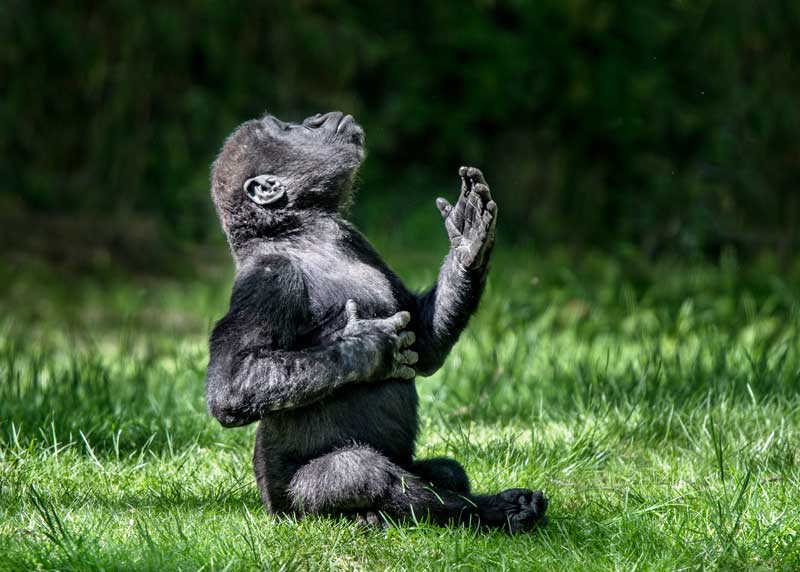
Do Baby Gorillas Beat their Chests?
Yes, baby gorillas do beat their chests.
There are a few reasons for this. For one, they may be trying to initiate play with a fellow baby gorilla. Plus imitating mom and dad is part of the growing up process.
More reading: Guide to 6 Gorilla Sounds and Noises
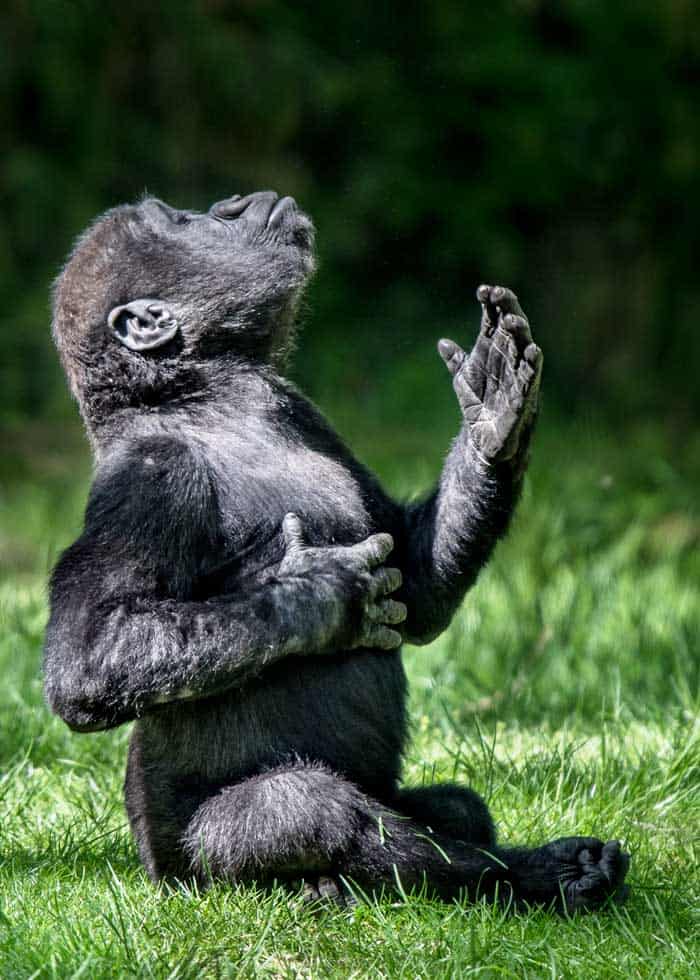
What do you call a group of gorillas? Guide to Gorilla Troop Size
Your Turn:
Did you learn something new about gorilla sounds today? Would you like the opportunity to see one of these impressive apes in their natural habitat? Leave your thoughts in the comments below.

